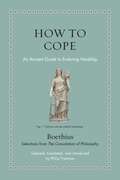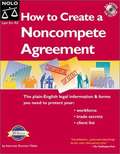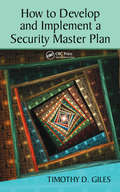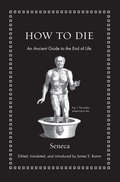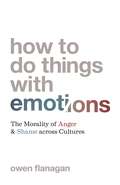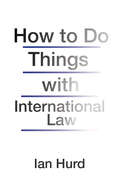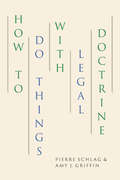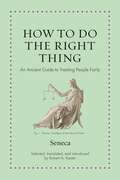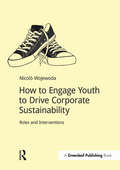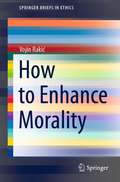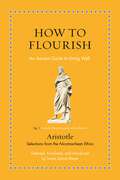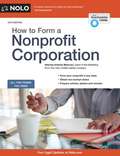- Table View
- List View
How to Change Your Name in California
by Emily Doskow Lisa SedanoThe complete guide to changing your name in California! Divorce, complicated spelling, tricky pronunciation, personal preference -- there are lots of reasons to change a name. And though the rules have changed recently, it's still a relatively straightforward procedure in the Golden State. How to Change Your Name in California provides the step-by-step instructions and legal forms you need to: - choose a name and make it your own - change back to your former name after divorce - change your child's name - get a new or amended birth certificate for you or your child - get a new driver license, Social Security card and passport - get a court to recognize a change of gender This edition reflects the latest rules and regulations on changing your name, a new section on changing your name after a same-sex marriage, including discussion of potential conflicts between state and federal law that can affect how the name change process turns out. Plus, it's been updated to reflect a recent law that allows either spouse to change their name after marriage.
How to Change Your Name in California
by Lisa Sedano AttorneyDivorce, complicated spelling, tricky pronunciation, personal preference -- there are several reasons why you may want to change your name. And though the rules have changed recently, it's still a relatively straightforward procedure. How to Change Your Name in California provides step-by-step instructions and all the forms you need to: choose a name and make it your own change back to your former name after divorce change your child's name get a new or amended birth certificate for you or your child get a new driver license, Social Security card and passport get a court to recognize a change of gender This edition reflects the latest rules and regulations stemming from the Patriot Act and the rise of identity theft, and provides the latest forms. The CD-ROM that accompanies the printed version of this book includes forms or other tools; in this eBook, you'll find all those documents in the appendix or at the back of the book.
How to Cope: An Ancient Guide to Enduring Hardship (Ancient Wisdom for Modern Readers)
by BoethiusA vivid and accessible new translation of essential selections from Boethius&’s Consolation of Philosophy—a moving classic about facing life&’s worst events with courage and hopeWhat do you do when your life has fallen apart? Fifteen hundred years ago, a Roman nobleman named Boethius (ca. 480–524 CE) asked this question as he was sitting in a prison cell waiting to die, accused—probably unjustly—of treason. Boethius had been a rich and powerful man with all a person could want in life, but now he had lost everything. Shaken, he wondered how such terrible misfortune could have happened to him and why life was so unfair. When Philosophy herself appears in his cell and confronts Boethius, the conversation that follows between the two on the nature of evil and why humans suffer is as powerful and inspiring today as it was to its first readers. In How to Cope, Philip Freeman presents a lively modern translation of essential selections from Boethius&’s classic, complete with an introduction and the original Latin on facing pages.This translation vividly captures Boethius&’s journey from bitterness and anger to reconciliation and peace, showing how ancient philosophy, especially Stoicism, can help readers deal with adversity in their own lives. The book reveals the qualities that have made The Consolation of Philosophy one of the most popular and influential works of classical and world literature, and an inspiration to countless writers, including Thomas Aquinas, Dante, and Chaucer.
How to Create a Noncompete Agreement
by Shannon MieheHow to Create a Noncompete Agreement provides readers with the step-by-step instructions they need to prevent former employees from: starting a competing business; working for a competitor; soliciting their customers; recruiting their employees; disclosing confidential information. Provides the forms (as tear-outs) needed to write noncompete agreements. Includes information on making effective agreements in states where a noncompete may be unenforceable.
How to Decarbonize: Policy and Social Theory
by Ross AstoriaHow to Decarbonize explores opportunities for decarbonization introduced by recent federal legislation, which has prompted state-level climate planning. It is designed for students and professionals whose work brings them into contact with these opportunities, even if climate is not their primary profession, including city managers, bankers, and home builders who are interested in participating in planning for decarbonization. Chapters aim to support the successful uptake of these policies by providing high-level views of these new decarbonization policies using social theory. The book is divided into four sections, each introducing a social theory about the organization of societies and how they change, and then providing examples to demonstrate the intricacies of implementation.
How to Destroy America in Three Easy Steps
by Ben ShapiroA NEW YORK TIMES BESTSELLER!A growing number of Americans want to tear down what it’s taken us 250 years to build—and they’ll start by canceling our shared history, ideals, and culture.Traditional areas of civic agreement are vanishing. We can’t agree on what makes America special. We can’t even agree that America is special. We’re coming to the point that we can’t even agree what the word America itself means. “Disintegrationists” say we’re stronger together, but their assault on America’s history, philosophy, and culture will only tear us apart.Who are the disintegrationists? From Howard Zinn’s A People’s History of the United States to the New York Times’ 1619 project, many modern analyses view American history through the lens of competing oppressions, a racist and corrupt experiment from the very beginning. They see American philosophy as a lie – beautiful words pasted over a thoroughly rotted system. They see America’s culture of rights as a façade that merely reinforces traditional hierarchies of power, instead of being the only culture that guarantees freedom for individuals.Disintegrationist attacks on the values that built our nation are insidious because they replace each foundational belief, from the rights to free speech and self-defense to the importance of marriage and faith communities, with nothing more than an increased reliance on the government. This twisted disintegrationist vision replaces the traditional “unionist” understanding that all Americans are united in a shared striving toward the perfection of universal ideals.How to Destroy America in Three Easy Steps shows that to be a cohesive nation we have to uphold foundational truths about ourselves, our history, and reality itself—to be unionists instead of disintegrationists. Shapiro offers a vital warning that if we don’t recover these shared truths, our future—our union—as a great country is threatened with destruction.
How to Develop and Implement a Security Master Plan
by Timothy GilesWritten for corporation security officers, this work is designed to help them garner executive support and increased funding for their security programs. It provides a thorough examination of the Security Master Planning process, explaining how to develop appropriate risk mitigation strategies and how to focus on both effectiveness and efficiency while conducting a site security assessment. The author constructs a comprehensive five-year plan that is synchronized with the strategies of a business or institution. This is a valuable reference tool for security professionals of small and large corporations, as well as for consultants in the field.
How to Die Without a Lawyer: A Practical Guide to Creating a Will Without Paying Legal Fees
by Mary ClementEnsuring that your estate is in order has become one of the most onerous legal tasks that anyone would ever have to face. Legal fees today can be astronomical, especially when an inheritance passes through probate.It doesn't have to be that way. In How to Die Without a Lawyer, Mary Clement, a prominent attorney who specializes in end-of-life issues, shows how to create a will, draw up advance directives, and create living trusts, thereby avoiding the exhorbitant costs of probate and lawyers' fees.In this easy-to-use book, Clement guides the reader through the steps necessary to put his or her affairs in order and maximize the inheritance passed on to loved ones. By reading this book and preparing in advance, anyone can avoid the costs and potential conflicts inherent in the execution of any estate. With a compassionate voice and a steady, guiding hand, How to Die Without a Lawyer is the essential book for anyone facing one of the most difficult processes life has to offer.
How to Die: An Ancient Guide to the End of Life
by Seneca James S. RommTimeless wisdom on death and dying from the celebrated Stoic philosopher Seneca"It takes an entire lifetime to learn how to die," wrote the Roman Stoic philosopher Seneca (c. 4 BC–65 AD). He counseled readers to "study death always," and took his own advice, returning to the subject again and again in all his writings, yet he never treated it in a complete work. How to Die gathers in one volume, for the first time, Seneca's remarkable meditations on death and dying. Edited and translated by James S. Romm, How to Die reveals a provocative thinker and dazzling writer who speaks with a startling frankness about the need to accept death or even, under certain conditions, to seek it out. Seneca believed that life is only a journey toward death and that one must rehearse for death throughout life. Here, he tells us how to practice for death, how to die well, and how to understand the role of a good death in a good life. He stresses the universality of death, its importance as life's final rite of passage, and its ability to liberate us from pain, slavery, or political oppression. Featuring beautifully rendered new translations, How to Die also includes an enlightening introduction, notes, the original Latin texts, and an epilogue presenting Tacitus's description of Seneca's grim suicide.
How to Disappear Completely and Never Be Found
by Doug RichmondA fascinating, if somewhat dated examination of how one can go about establishing a new life and new identity.
How to Do Things with Emotions: The Morality of Anger and Shame across Cultures
by Owen FlanaganAn expansive look at how culture shapes our emotions—and how we can benefit, as individuals and a society, from less anger and more shameThe world today is full of anger. Everywhere we look, we see values clashing and tempers rising, in ways that seem frenzied, aimless, and cruel. At the same time, we witness political leaders and others who lack any sense of shame, even as they display carelessness with the truth and the common good. In How to Do Things with Emotions, Owen Flanagan explains that emotions are things we do, and he reminds us that those like anger and shame involve cultural norms and scripts. The ways we do these emotions offer no guarantee of emotionally or ethically balanced lives—but still we can control and change how such emotions are done. Flanagan makes a passionate case for tuning down anger and tuning up shame, and he observes how cultures around the world can show us how to perform these emotions better.Through comparative insights from anthropology, psychology, and cross-cultural philosophy, Flanagan reveals an incredible range in the expression of anger and shame across societies. He establishes that certain types of anger—such as those that lead to revenge or passing hurt on to others—are more destructive than we imagine. Certain forms of shame, on the other hand, can protect positive values, including courage, kindness, and honesty. Flanagan proposes that we should embrace shame as a uniquely socializing emotion, one that can promote moral progress where undisciplined anger cannot.How to Do Things with Emotions celebrates the plasticity of our emotional responses—and our freedom to recalibrate them in the pursuit of more fulfilling lives.
How to Do Things with International Law
by Ian HurdA provocative reassessment of the rule of law in world politicsConventionally understood as a set of limits on state behavior, the “rule of law” in world politics is widely assumed to serve as a progressive contribution to a just, stable, and predictable world. In How to Do Things with International Law, Ian Hurd challenges this received wisdom. Bringing the study of law and legality together with power, politics, and legitimation, he illustrates the complex politics of the international rule of law.Hurd draws on a series of timely case studies involving recent legal arguments over war, torture, and drones to demonstrate that international law not only domesticates state power but also serves as a permissive and even empowering source of legitimation for state action—including violence and torture. Rather than a civilizing force that holds the promise of universal peace, international law is a deeply politicized set of practices driven by the pursuit of particular interests and desires. The disputes so common in world politics over what law permits and what it forbids are, therefore, fights over the legitimating effect of legality.A reconsideration of the rule of law in world politics and its relationship to state power, How to Do Things with International Law examines how and why governments use and manipulate international law in foreign policy.
How to Do Things with Legal Doctrine
by Pierre Schlag Amy J. GriffinLegal doctrine—the creation of doctrinal concepts, arguments, and legal regimes built on the foundation of written law—is the currency of contemporary law. Yet law students, lawyers, and judges often take doctrine for granted, without asking even the most basic questions. How to Do Things with Legal Doctrine is a sweeping and original study that focuses on how to understand legal doctrine via a hands-on approach. Taking up the provocative invitations from the “New Doctrinalists,” Pierre Schlag and Amy J. Griffin refine the conceptual and rhetorical operations legal professionals perform with doctrine—focusing especially on those difficult moments where law seems to run out, but legal argument must go on. The authors make the crucial operations of doctrine explicit, revealing how they work, and how they shape the law that emerges. How to Do Things with Legal Doctrine will help all those studying or working with law to gain a more systematic understanding of the doctrinal moves many of our best lawyers make intuitively.
How to Do the Right Thing: An Ancient Guide to Treating People Fairly (Ancient Wisdom for Modern Readers)
by SenecaHow ancient Stoicism can help teach us to treat others—and ourselves—more fairly and mercifully There are times when we&’ve all felt that we haven&’t been treated as we deserve—that we&’ve been misjudged, shortchanged, or given a raw deal. And, at one time or another, other people have probably felt that we&’ve treated them just as unfairly. How to Do the Right Thing draws on the principles of ancient Stoicism as articulated by the Roman statesman and philosopher Seneca to help readers better navigate one of the most important practical questions of daily life—how to do right by others.Starting from the virtue of magnanimity—the opposite of small-mindedness—How to Do the Right Thing draws together lessons from Seneca&’s writings that stress the importance of calm and clear thinking, of judging oneself fairly before judging others, and of cutting people slack, with a bias toward mercy—all delivered in crisp and lively new translations, and with the original Latin on facing pages.
How to Drive: Making Driver Education Fun and Easy!
by American Automobile AssociationHow To Drive AAA 15th Edition is the most up-to-date textbook with full-color illustrations and diagrams throughout – everything a new driver needs to know in one convenient book. Revised in 2020 by American Automobile Association.
How to Engage Youth to Drive Corporate Sustainability: Roles and Interventions
by Nicolò WojewodaHow to Engage Youth to Drive Corporate Sustainability provides practical, specific recommendations that professionals can adopt to improve engagement of young people and drive forward corporate sustainability efforts.
How to Enhance Morality (SpringerBriefs in Ethics)
by Vojin RakićThis book offers an innovative approach to moral enhancement. We, as humans, have a moral duty to be as good as we can be. Hence, moral bio-enhancement (MBE), if effective and safe, is our moral duty. However, it has to be voluntary because if it is made compulsory, human freedom (of the will) would be curtailed. As freedom (of the will) is an essential component of humanness, compulsory MBE would infringe upon our humanness.An essential question is; what will motivate humans to subject themselves voluntarily to MBE?The book argues - and supports by using empirical/experimental evidence - that morality and happiness operate in a circularly supportive relationship that applies to most humans most of the time: the better they are, the happier they will be; the happier they are, the better they will be. Hence, the grounding rationale for MBE ought not to be the prevention of “ultimate harm” based on compulsory MBE (as argued by Persson and Savulescu), but human happiness based on voluntary MBE. The primary objective of the book is to provide the readers with an original view on moral enhancement, whilst proposing a novel conception of moral enhancement that is informed by new biotechnological developments.
How to Fight Anti-Semitism
by Bari WeissThe prescient New York Times writer delivers an urgent wake-up call to all Americans exposing the alarming rise of anti-Semitism in this country—and explains what we can do to defeat it. “Stunning . . . Bari Weiss is heroic, fearless, brilliant and big-hearted. Most importantly, she is right.”—Lisa Taddeo, #1 New York Times bestselling author of Three Women On October 27, 2018, eleven Jews were gunned down as they prayed at their synagogue in Pittsburgh. It was the deadliest attack on Jews in American history. For most Americans, the massacre at Tree of Life, the synagogue where Bari Weiss became a bat mitzvah, came as a total shock. But anti-Semitism is the oldest hatred, commonplace across the Middle East and on the rise for years in Europe. So that terrible morning in Pittsburgh raised a question Americans can no longer avoid: Could it happen here? This book is Weiss’s answer. Like many, Weiss long believed this country could escape the rising tide of anti-Semitism. But now the luckiest Jews in history are beginning to face a three-headed dragon known all too well to Jews of other times and places: the physical fear of violent assault, the moral fear of ideological vilification, and the political fear of resurgent fascism and populism. No longer the exclusive province of the far right, the far left, and assorted religious bigots, anti-Semitism now finds a home in identity politics and the reaction against identity politics, in the renewal of America First isolationism and the rise of one-world socialism, and in the spread of Islamist ideas into unlikely places. A hatred that was, until recently, reliably taboo, anti-Semitism is migrating toward the mainstream, amplified by social media and a culture of conspiracy that threatens us all. Weiss’s cri de coeur is an unnerving reminder that Jews must never lose their hard-won instinct for danger, and a powerful case for renewing Jewish and American values in uncertain times from one of our most provocative writers. Not just for the sake of America’s Jews, but for the sake of America.
How to File for Chapter 7 Bankruptcy
by Stephen Elias Albin Renauer Cara O'NeillIf you have more debt than you can possibly pay off, the bankruptcy system is there to help -- and with How to File for Chapter 7 Bankruptcy, you'll find the clear and user-friendly information, advice, and step-by-step instructions youâ TMll need to get through the entire process. First, the book will help you determine whether you qualify for Chapter 7 -- and whether it is the best way to deal with your debts. Then you'll find out how to: stop wage garnishments and attachments cancel as much debt as possible deal with secured debts keep the maximum amount of property keep your home, if possible ebuild credit after bankruptcy The 19th edition is revised to include instructions on filling out the new means test forms, changes to state exemption laws (that determine what property bankruptcy filers may keep), and the latest court decisions. Plus, state and federal charts let you quickly find your state's exemption laws. Please note: This book does not cover business bankruptcies, farm reorganizations, or individual repayment plans (Chapter 13). For Chapter 13 bankruptcy, see Nolo's Chapter 13 Bankruptcy.
How to File for Chapter 7 Bankruptcy
by Stephen Elias Albin Renauer Cara O'NeillIf you’re overwhelmed by debt, the bankruptcy system can help. How to File for Chapter 7 Bankruptcy provides the clear information and step-by-step instructions you’ll need to get through the entire process without an attorney. The book will help you determine whether you qualify for relief and whether filing for Chapter 7 bankruptcy will help you solve your debt issues. You’ll also learn how to: stop wage garnishments and lawsuits wipe out as much debt as possible deal with debts you’ve secured with collateral keep as much property as possible, and rebuild credit after bankruptcy The 20th edition is revised to include instructions that will help you complete the new user-friendly bankruptcy forms, changes to state exemption laws (which determine what property bankruptcy filers can keep), and important legal updates. Please note: This book does not cover business bankruptcies, farm reorganizations, or individual repayment plans (Chapter 13). For Chapter 13 bankruptcy, see Nolo's Chapter 13 Bankruptcy.
How to File for Chapter 7 Bankruptcy: By Stephen Elias, Albin Renauer And Robin Leonard
by Albin Renauer Cara O'NeillIf you’re overwhelmed by debt, the bankruptcy system can help. How to File for Chapter 7 Bankruptcy provides the clear information and step-by-step instructions you’ll need to get through the entire process without an attorney. The book will help you determine whether you qualify for relief and whether filing for Chapter 7 bankruptcy will help you solve your debt issues. You’ll also learn how to: stop wage garnishments and lawsuits wipe out qualifying debt deal with debts you’ve secured with collateral keep as much property as possible, and rebuild credit after bankruptcy. The 21st edition includes revised instructions for all of the new user-friendly bankruptcy forms, changes to state exemption laws (which determine what property bankruptcy filers can keep), and important legal updates. Please note: This book does not cover business bankruptcies, farm reorganizations, or individual repayment plans (Chapter 13). For Chapter 13 bankruptcy, see Nolo's Chapter 13 Bankruptcy.
How to Find Fraud and Corruption: Recipes for the Aspiring Fraud Detective
by Nigel IyerIn a typical working environment in which 'fraud and corruption' is as normal as a headache or as common as a cold, everyone in the organization has a role to play in finding and deterring fraudsters. Despite universal acknowledgement that these things may be illegal but still prevalent, managers still treat them as 'someone else's problem' or 'something that happens to other businesses, not ours’. This book shows, in simple terms, how everybody can become a successful fraud detective. A series of proven and easy-to-follow recipes show how to find the tell-tale signs of fraud and corruption and work with colleagues to deal with fraud smartly, keeping the organization you work for healthy and clean. The skills taught in this book are based on over 25 years’ experience of successfully finding and dealing with fraud and corruption, all around the world. How to Find Fraud and Corruption offers wayfinding techniques for identifying and recognizing common frauds such as: suppliers who charge too much; sharp business partners and consultants who are taking you for a ride; customers who take but prefer not to pay. It also shows how to spot and unravel more complex but equally serious and common frauds: hidden connections to dirty money centres (the illegitimate side of tax havens); bribes paid as a shortcut to get business; creative numbers fraud (inflation of sales figures or suppression of costs); conflicts of interest involving individuals inside or outside the business. The final chapter is a short story (based on a real case) which illustrates a fraud detective’s challenges, whether they are a reluctant whistleblower, someone who cannot turn a blind eye even if they would prefer to, or even the accused. Accessible and practical, this book is for everyone who wants to stop fraud, including those working in accounting and finance, management, specialist functions, such as audit, compliance and security, and anyone else who aspires to be a fraud detective and stop fraud and corruption.
How to Flourish: An Ancient Guide to Living Well (Ancient Wisdom For Modern Readers Ser.)
by AristotleAristotle’s essential guide to human flourishing—the Nicomachean Ethics—in a lively new abridged translationAristotle’s Nicomachean Ethics is one of the greatest guides to human flourishing ever written, but its length and style have left many readers languishing. How to Flourish is a carefully abridged version of the entire work in a highly readable and colloquial new translation by Susan Sauvé Meyer that makes Aristotle’s timeless insights about how to lead a good life more engaging and accessible than ever before.For Aristotle, flourishing involves becoming a good person through practice, and having a life of the mind. To that end, he draws vivid portraits of virtuous and vicious characters and offers sound practical advice about everything from eating and drinking to managing money, controlling anger, getting along with others, and telling jokes. He also distinguishes different kinds of wisdom that are essential to flourishing and offers an unusual perspective on how to appreciate our place in the universe and our relation to the divine.Omitting Aristotle’s digressions and repetitions and overly technical passages, How to Flourish provides connecting commentary that allows readers to follow the continuous line of his thought; it also features the original Greek on facing pages. The result is an inviting and lively version of an essential work about how to flourish and lead a good life.
How to Form Your Own California Corporation
by Anthony MancusoIncorporate your business in California Protect your personal assets By incorporating your business, you separate your personal and business assets—and shield your house, investments, and other personal assets from business creditors. There are other advantages as well, including easier access to capital, employee perks, and certain tax benefits. How to Form Your Own California Corporation offers step-by-step instructions on how to incorporate your small business in California. It shows you how to: file articles of incorporation prepare bylaws issue shares of stock, and set up a corporate records book. How to Form Your Own California Corporation makes the entire incorporation process easy. Like tens of thousands of California entrepreneurs have done over the last 30 years, you really can complete and file all the paperwork yourself. This edition is completely updated and revised to provide current regulations, tax requirements, contact information for relevant agencies, helpful resources, and the most up-to-date forms available.
How to Form a Nonprofit Corporation (7th edition)
by Anthony MancusoMancuso, an attorney and corporations expert, explains how to form and operate a tax-exempt corporation in every state, from completing an IRS tax-exemption application and preparing articles of incorporation to filling in minutes of the organizational meeting. The seventh edition is updated to provide the latest federal and state rules. It also provides the latest forms, including the new IRS form 1023. Articles, bylaws and minutes are included as tear-outs and on CD-ROM. Annotation ©2005 Book News, Inc., Portland, OR (booknews.com)


